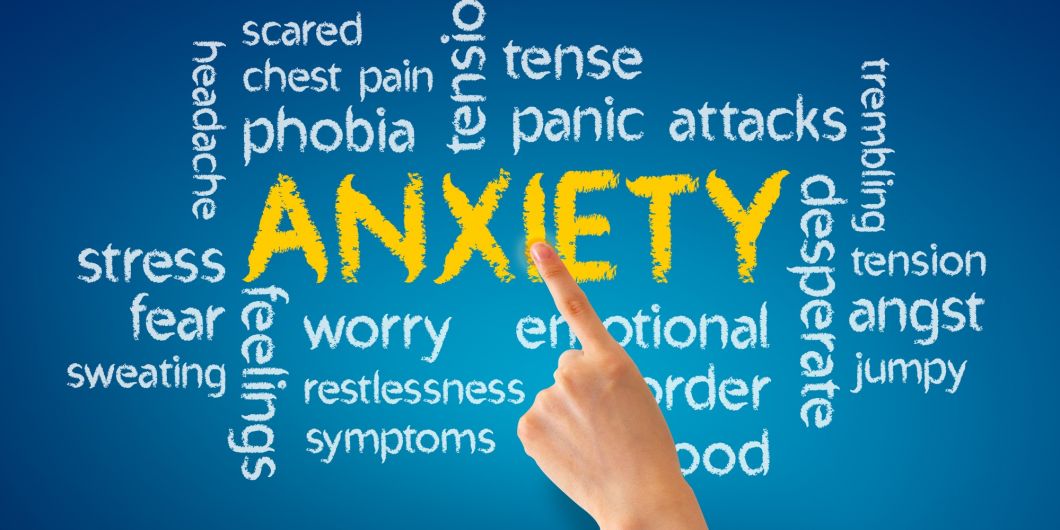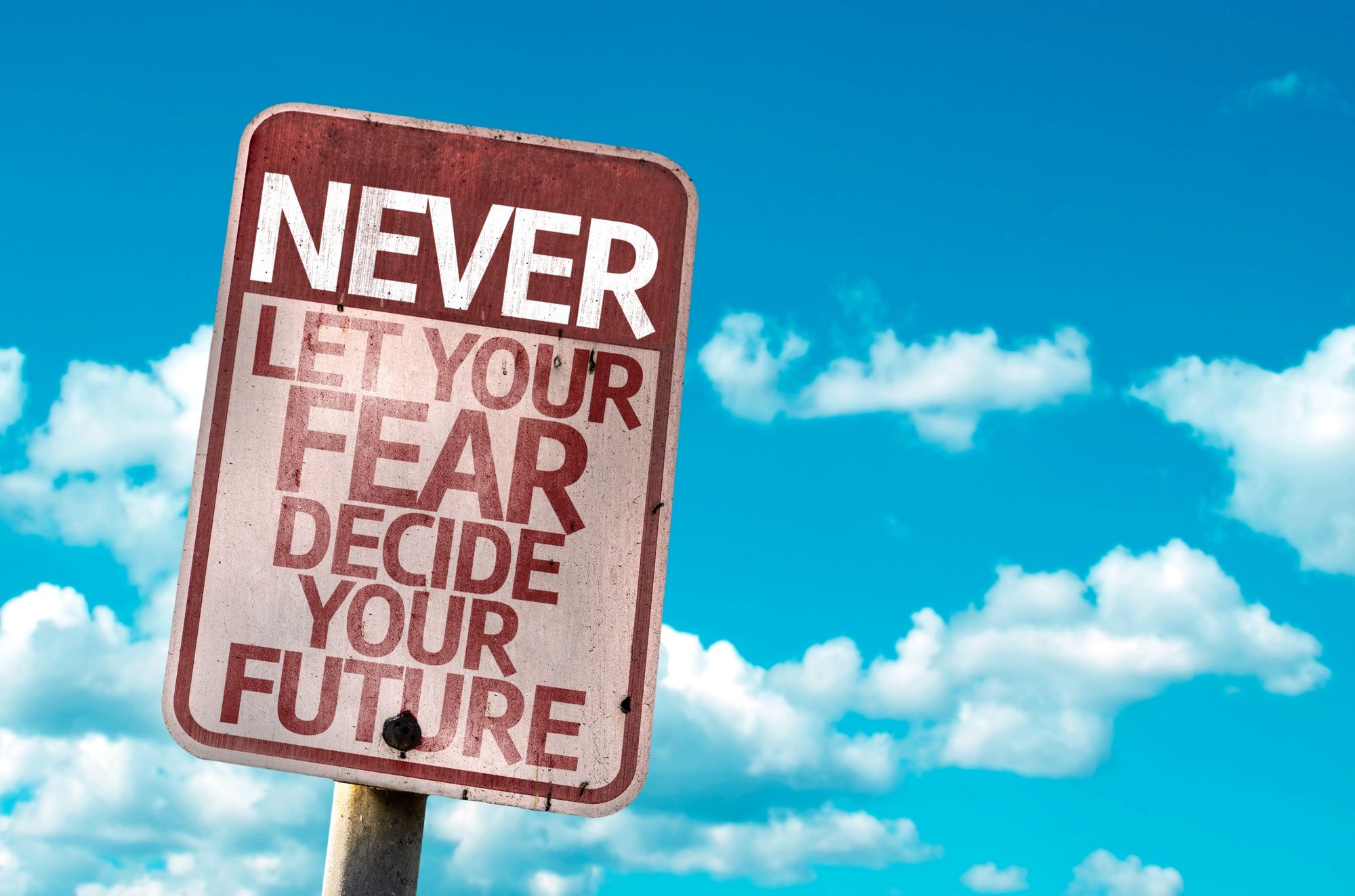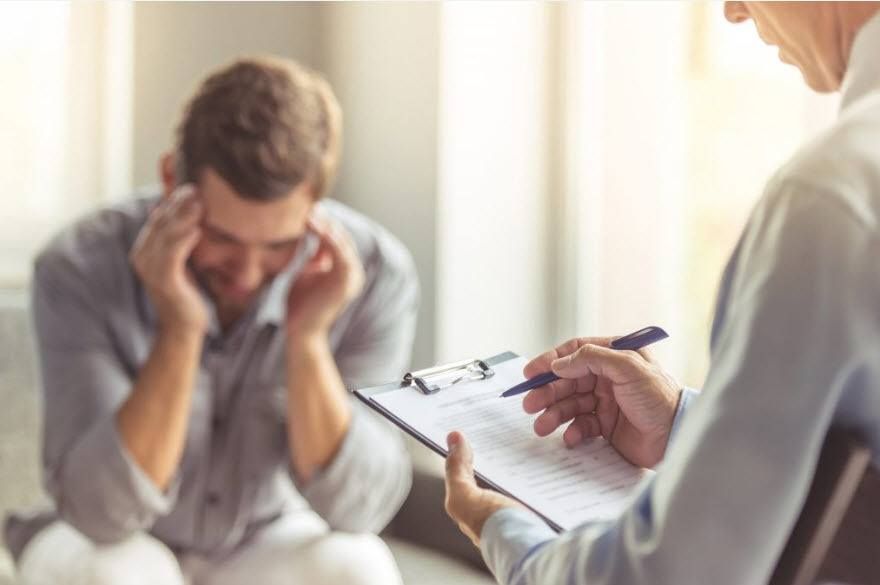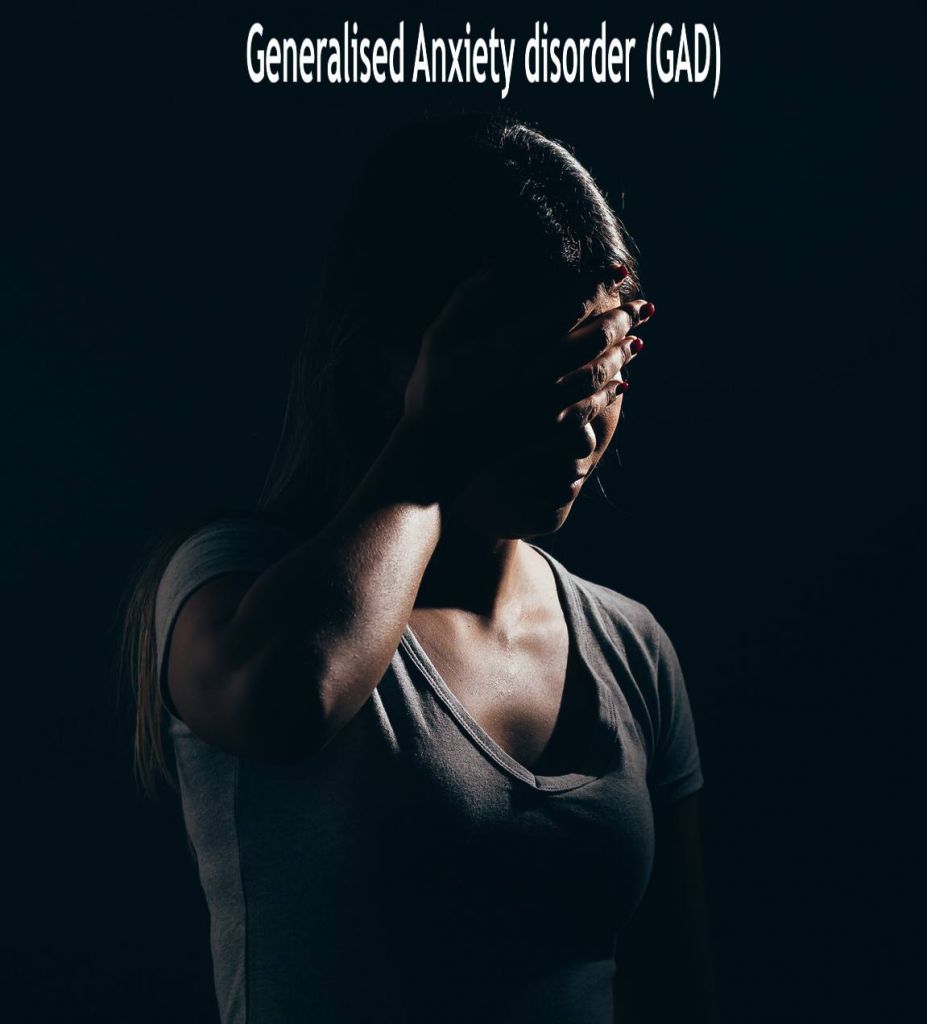- in Anxiety , Depression , Stress by Tony
Anxiety vs. Depression

While Depression and Anxiety are two different medical conditions, their symptoms, causes, and treatments can often overlap. Try asking someone to name two common mental health problems, chances are they will think of anxiety and depression. Despite the fact that they are commonly referenced in conversation, people still struggle sometimes to determine the difference between these two conditions. This is because many people with anxiety also develop depression and vice versa.
More...
Roughly 50% of people diagnosed with depression with also be diagnosed with an anxiety disorder.1 However, it’s important to get an accurate diagnosis in order to treat the correct conditions.
Many people with depression may experience what is known as “anxious distress” in addition to their low mood. People with anxious distress often feel tense, restless, and have trouble concentrating because they worry so much. They are deeply afraid that something bad is going to happen or that they might lose control of themselves. People who experience anxious distress with depression may be at higher risk for suicide or need more intensive treatment, so it is important to identify these symptoms along with the depression.
Above all, it’s important to remember to let a doctor or mental health professional evaluate you to see if your symptoms meet the criteria for a depressive disorder or an anxiety disorder.

Symptoms of Major Depression
- depressed mood
- lack of interest in enjoyable activities
- increase or decrease in appetite
- insomnia or hypersomnia
- slowing of movement
- lack of energy
- feelings of guilt or worthlessness
- trouble concentrating
- suicidal thoughts or behaviors.
For a diagnosis of major depressive disorder, a person needs to have experienced five or more of these symptoms for at least two weeks. People experiencing some of these symptoms might also be diagnosed with persistent depressive disorder (dysthymia), premenstrual dysphoric disorder, or a depressive disorder due to another condition. They may also meet the criteria for bipolar disorder if they also experience symptoms of mania.
Symptoms of Generalized Anxiety Disorder
- excessive worry
- restlessness
- being easily fatigued
- trouble concentrating
- irritability
- sleep disturbance
- muscle tension.
If you’ve experienced these symptoms most days for more than six months, and they cause distress in your daily life, then you may receive a diagnosis of generalized anxiety disorder. Other types of anxiety disorders include separation anxiety, panic disorder, or phobias, among others.
If you compare the two lists of symptoms, you can see that there is some overlap. Sleep problems, trouble concentrating, and fatigue are all symptoms of both anxiety and depression. Irritability may also manifest in forms of anxiety or depression (in place of low mood).
There are however, some distinguishing features. People with depression move slowly, and their reactions can seem flattened or dulled. People with anxiety tend to be more keyed up, as they struggle to manage their racing thoughts.
Another distinguishing feature is the presence of fear about the future in people with anxiety. Depressed people who do not have anxiety are less likely to be fraught with worry about future events, as they are often resigned to believing that things will continue to be bad. In other words, they may predict the future based on how they feel in the moment.

Talking to Your Doctor
If you have anxiety, depression, or both, chances are that your doctor will recommend medication, therapy, or a combination of the two. Keep track your symptoms and keep a log of how you feel each day, as this can help in the diagnostic process.
It’s also important to speak up and ask your doctor whether they think you have depression, anxiety, or both. This clarity can help you understand the treatment focus and how to manage your symptoms.
For example, a patient who is prescribed an antidepressant like a selective serotonin reuptake inhibitor (SSRI) may not realize that the medication has been prescribed for their anxiety, as SSRIs are used to treat both anxiety and depression.
Never hesitate to ask about your diagnosis, as you have a right to your personal health information.
The most important quality that anxiety and depression share is that they are both very treatable conditions. Never hesitate to find people to help you stayed informed and on the right track towards a healthier mind and body.
Who can you recruit to help you with your anxiety or depression today?

If you have generalised anxiety disorder (GAD) you have a lot of anxiety (feeling fearful, worried and tense) on most days.
The condition persists long-term.
Some of the physical symptoms of anxiety may come and go. Your anxiety tends to be about various stresses at home or work, often about quite minor things. Sometimes you do not know why you are anxious.
It can be difficult to tell the difference between normal mild anxiety in someone with an anxious personality and someone with GAD. As a rule, symptoms of GAD cause you distress and affect your day-to-day activities. In addition, you will usually have some of the following symptoms:
- Feeling restless, on edge, irritable, muscle tension, or keyed up a lot of the time.
- Tiring easily.
- Difficulty concentrating and your mind going blank quite often.
- Poor sleep (insomnia). Usually it is difficulty in getting off to sleep.
You do not have GAD if your anxiety is about one specific thing. For example, if your anxiety is usually caused by fear of one thing then you are more likely to have a phobia.
What causes generalised anxiety disorder?
The cause is not clear. The condition often develops for no apparent reason. Various factors may play a part. For example:
- Your genetic 'makeup' may be important (the material inherited from your parents which controls various aspects of your body). Some people have a tendency to have an anxious personality, which can run in families.
- Childhood traumas such as abuse or death of a parent, may make you more prone to anxiety when you become older.
- A major stress in life may trigger the condition. For example, a family crisis or a major civilian trauma such as a toxic chemical spill. But the symptoms then persist when any trigger has gone. Common minor stresses in life, which you may otherwise have easily coped with, may then keep the symptoms going once the condition has been triggered.
Some people who have other mental health problems such as depression or schizophrenia may also develop GAD.
GAD develops in about 1 in 50 people at some stage in life. Twice as many women as men are affected. It usually first develops in your 20s but is frequently being recognised in older people.
